

CPEC PHAsE-II to HElP PAkIstAn
trAnsform Its EConomY: Pm
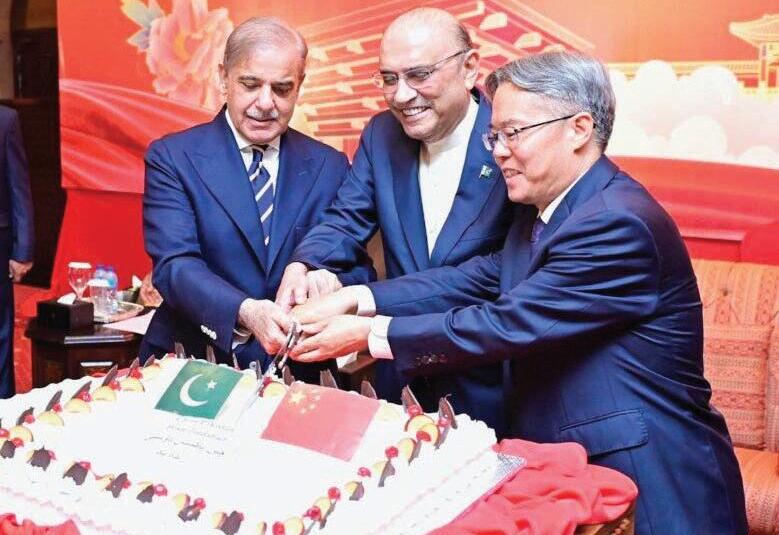
S
R I M E Minister Muhammad
Shehbaz Sharif on Thursday said the second phase of the China Pakistan Economic Corridor (CPEC) would help Pakistan transform its economy, noting the phase will enhance cooperation in various sectors, including agriculture, information technology, and mining between the “iron brothers ”
“The friendship between Pakistan and China is higher than the Himalayas and deeper than the oceans PM Shehbaz Sharif remarked, highlighting the inseparable bond between the two nations
Prime Minister Shehbaz Sharif said while addressing an event organized by the Chinese Embassy here to commemorate China s 75th anniversary
President Asif Ali Zardari federal ministers, diplomats, dignitaries, and senior civil
and military officers attended the event
He congratulated the Chinese government and its citizens, emphasizing China’s status as a global power and a vital partner in international affairs
Both leaders expressed their commitment to working collaboratively towards a prosperous future for both nations, underscoring the strength and significance of the Pakistan-China friendship
In speech the premier also acknowledged China’s critical role during the negotiations with the International Monetary Fund (IMF) We are entering into the second phase of CPEC which has huge potential of mutual cooperation in the field of agriculture, Information Technology, mines and minerals and many other important areas of mutual interests ” the prime minister said However he stressed the need to develop in various fields including agriculture, industry and other areas to ensure
ISLAMABAD
President Asif Ali Zardari on Thursday reaffirmed Pakistan s commitment to working together with China for shared prosperity, and promoting peace and stability in the world
Highlighting the importance of the China-Pakistan Economic Corridor (CPEC) the President said that high quality development of CPEC would help unlock greater benefits for our people, besides enhancing connectivity and prosperity of the region”
He emphasized the importance of advancing the high-quality development of CPEC to unlock greater benefits for the people of two countries
President Zardari was speaking at the China s National Day Reception , hosted by the Chinese Embassy
The event marking the 75th anniversary of the founding of the People s Republic of China was attended by Prime Minister Shehbaz Sharif federal ministers, dignitaries, diplomats, and senior civil and military officers
development and prosperity in the country
He reiterated that the ongoing partnership not only fostered regional development and peace but also contributed to global stability and progress aligning with President Xi Jinping s vision
He also reaffirmed Pakistan s support for China’s positions on international issues, including those related to Hong Kong and Taiwan
He expressed gratitude for the warm
President Zardari extending the warmest felicitations to Chinese brothers and sisters on the auspicious occasion stated that the first October marked the rebirth of a strong, united China, achieved through the heroic struggle of the Chinese people under the visionary leadership of the Communist Party
He reflected on the invaluable contributions made by the successive generations in transforming the Pakistan-China friendship into an All-Weather Strategic Cooperative Partnership
This partnership, he said, had
The president hoped that China was poised
welcome received from President Xi Jinping and the Chinese leadership during his recent visit to China stating that the relationship between the two countries is indestructible and inseparable
The prime minister said the government was eager to welcome the the Chinese Prime Minister who will participate in Shanghai Cooperation Organization Council of Heads of Government (SCO CHG) meeting to be held in Islamabad
Af ter amendment no chance of implementing SC verdict on reser ved seats: NA speaker
ISLAMABAD/LAHORE S TA F F R E P O R T
Speaker National Assembly Sardar Ayaz Sadiq on Thursday wrote a letter to the Election Commission of Pakistan (ECP), stating that the Supreme Court’s verdict on reserved seats “cannot be implemented after the enactment of the Amended Election Act 2017
In the letter the speaker acknowledged the apex court s verdict, stating, The Honourable Supreme Court of Pakistan has directed the [ECP] to allow successful independent candidates to join another political party months after already joining a political party as a result of the General Elections 2024 It states that the ruling was issued on July 7 with amendments to the Elections Act 2017 were passed into law on August 7 with presidential assent The letter highlighted amendments to Sections 66 and 104-A in particular
According to Section 66, “Provided that if a candidate before seeking allotment of a prescribed symbol has not filed a declaration before the Returning Officer about
Khawarij) is an organization of
cial concern to Pakistan and should be of concern to the entire region and the world,” the
envoy said while giving details of its deadly cross-border attacks that resulted in the deaths of hundreds of civilians and soldiers
Even three years after the Taliban assumed the reins of power in Afghanistan, the situation continues to be dire and deeply concerning Ambassador Akram said There will be no normalization “until the fundamental issues that trouble Afghanistan are addressed terrorism human rights political inclusion, illegal Afghan migration and the problem of Afghan refugees “Terrorism within and from Afghanistan poses the single most serious threat to the country to the region and to the world he said highlighting a recent United Nations report describing TTP as the largest terrorist group in that country which receives growing support from Taliban rulers to conduct cross-border attacks in Pakistan
his affiliation with a particular political party by submitting party certificate from the political party confirming that he is that party s candidate, he shall be deemed to be considered as an independent candidate and not a candidate of any political party ” In July the SC declared Imran Khan s Pakistan Tehreek-i-Insaf (PTI) eligible to be entitled to seats reserved for women and minorities PTI-backed candidates, who had contested and won the February 8 elections as independents after their party was stripped of its election symbol had joined the Sunni Ittehad Council (SIC) to form a coalition of convenience
The ECP had raised concerns about who in the PTI should be contacted for verification given the party’s lack of structure and unrecognised intra-party elections suggesting that the election regulator might need to seek further directions from the court Last week, however, the SC rebuked the “misconceived” request by the ECP seeking clarification regarding its verdict and ordered the immediate implementation of its original directions
On the other hand, the ECP re-
mained undecided on the implementation of SC’s verdict and held a meeting to deliberate on the apex court s judgment and its September 14 order in response to the clarification sought by the commission
Meanwhile, Section 104-A states: “Notwithstanding anything contained in this Act or rules or any other law for the time being in force or a judgment decree or order of any court including the Supreme Court and a High Court, the declaration, consent or affidavit, by whatever name called of an independent returned candidate once given for joining a political party shall be irrevocable and cannot be substituted or withdrawn
The letter said that in the context of the Amended Election Act, which was passed after the SC verdict the ruling on reserved seats cannot be implemented under the new law
As the Judgement of the SC was rendered based on the law prior to the enactment of the amendment, the said judgment is now incapable of implementation ”
The speaker ’s letter added that the amended act would supersede the SC s ruling and that the apex court recognised this decision
While the AIG is fighting ISIL-K (Daesh) – without complete success so far –other terrorist groups such as Al-Qaeda, and the TTP and others, are not only present in Afghanistan; they appear to have been provided safe havens and protection by the AIG (Afghan Interim Government)
At the same time Ambassador Akram reaffirmed Pakistan s dedication to supporting a peaceful and stable Afghanistan, echoing the shared aspirations of its neighboring countries and the international community for greater political inclusivity in Afghanistan Pakistan he said firmly believes that such inclusivity was vital for enhancing the prospects of stability and normalization within that country However the Pakistan UN envoy expressed deep concern about the ongoing violations of human rights by the Afghan Interim Government (AIG) particularly against women and girls The AIG has not only reneged on its commitments regarding women and girls but
has exacerbated the situation by issuing new directives aimed at silencing their voices, he stated Ambassador Akram said Pakistan strongly condemns these actions He said that these backward measures violate the true essence of our enlightened religion which was among the first to uphold equal rights for both men and women The Pakistan envoy said that while we remain committed to constructive engagement with the Taliban regime it is clear that the regime must not be allowed to manipulate regional and international
ISLAMABAD


Pakistani rupee experiences modest declines against USD and GBP
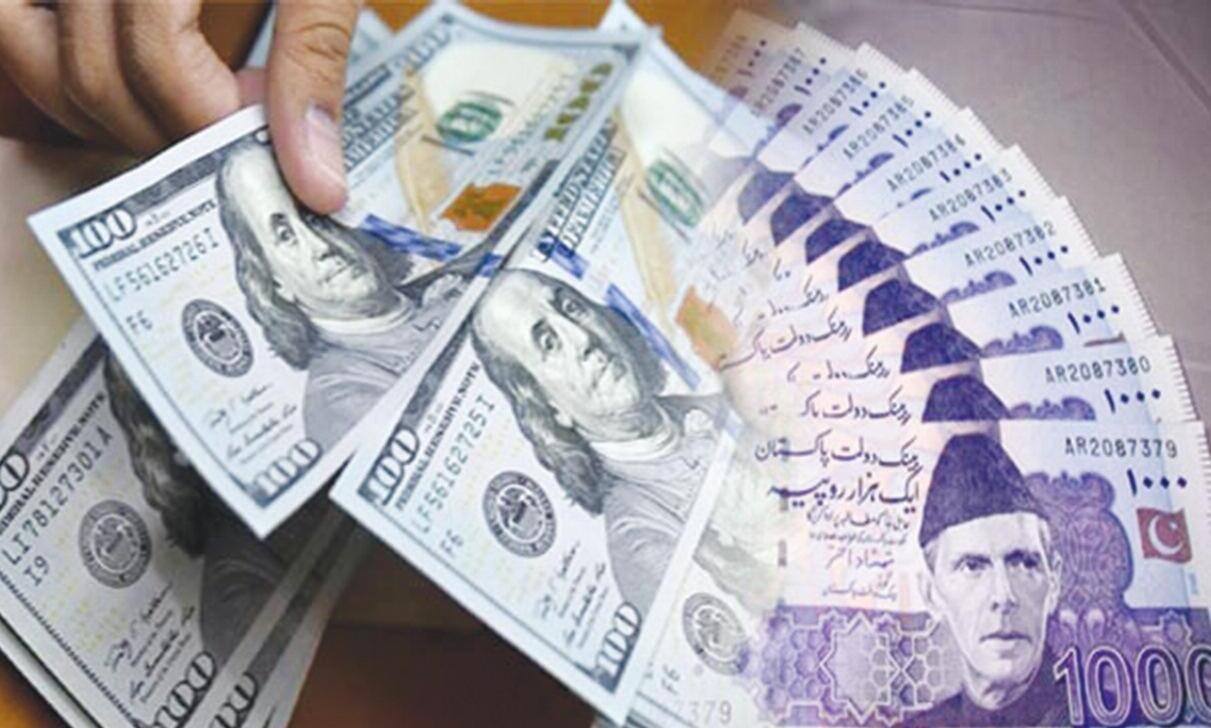


Double ‘honour’ killing, attack on ex-wife reported in Swat
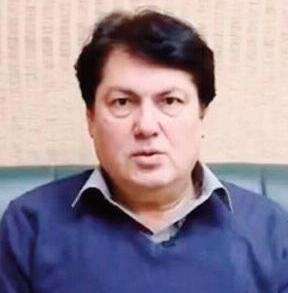
PPP’s Ramesh Kumar doubts system’s sur vival, predicts tough times ahead
ISLAMABAD S ta f f R e p o R t
Pakistan People s Party (PPP) leader Dr Ramesh Kumar expressed his concerns about the current political and economic situation stating “Whether the government falls or not I don’t see this system working ” Speaking to a private TV channel Kumar predicted that in the next 10 to 15 days the situation will become clearer and that anything could happen He added, While things appear to be under control, they are not in reality Referring to Prime Minister Shehbaz Sharif ’s efforts, Kumar remarked that despite his activism, he doesn’t foresee a significant change in Pakistan’s fate under his leadership He further commented This is the year of the judiciary and legislation related to it is also under scrutiny Kumar also pointed to ongoing political disputes, which, he believes, will affect the country s future stability Foreign investment won t come without internal stability,” he noted He warned that the next three to four months will be both difficult and critical for Pakistan adding that economic challenges persist regardless of credit rating reports or loan rollovers
PTI and gov t compete for JI’s suppor t in key meetings
PESHAWAR S ta f f R e p o R t Both Pakistan Tehreek-e-Insaf (PTI) and the federal government have ramped up their efforts to engage with Jamaat-e-Islami (JI), as former President Dr Arif Alvi is scheduled to meet the JI leadership today in Mansoora A government delegation is also
Organized by the National Rehmatul-lilAalameen Authority (NRKNA), the festival will feature various programs, including the International
Seerat Conference’ and a ‘Seerat Ketab Mela’ (Book Fair) showcasing Islamic literature focused on Seerat-un-Nabi
During a press briefing Secretary FEPT Mohyuddin Wani and NRKNA Chairman Khursheed Nadeem highlighted the importance of the event in promoting peace, tolerance, and the teachings of the Holy Prophet Muhammad (PBUH) Scholars and academicians from around the world will participate reflecting on the Prophet’s life and message of mercy
The public is invited to attend and participate in exhibitions discussions and academic sessions Capital all set to host three - day Rahmatul-lil-A alameen festival today
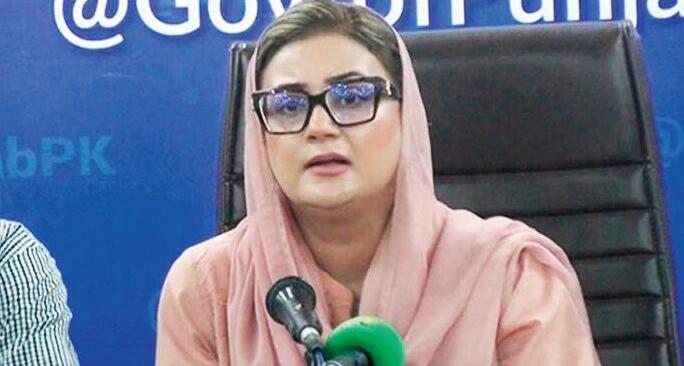
welcomed by Dean Faculty of Arts Prof Dr Zahid Yousaf and Dean Faculty of Social Sciences Prof Dr Faisal Mahmood Mirza along with the Vice Chancellor s office staff Later during a meeting at the Vice Chancellor s office the US diplomat and Prof Dr Muhammad Mushahid Anwar discussed matters of mutual interest The consul-general was briefed on the educational and research activities at the university Dr Mushahid Anwar highlighted that the University of Gujrat had been promoting knowledge and research

dispute in Nawabshah

TH E offer of visiting Russian Deputy Prime Minister Alexey Overchuk to support Pakistaná application to join the BRICS is of great significance, because it is probably the next best thing to having India invite Pakistan The desirability of joining the grouping was enhanced last year, when it expanded to bring in Iran the UAE Saudi Arabia Iran, Egypt, Ethiopia and Argentina BRICS was clearly changing from a grouping of emerging powers and superpowers, to an association of countries which might seek a new world order, one which was not dominated by the USA or any of the other Western powers As the organization reaches decisions by consensus, it was feared that India, one of the BRICS founders, would want to keep out Pakistan India has a track record of doing so, doing its best to keep Pakistan out of the Non-Aligned Movement even after it became eligible for membership Pakistan could omly join when NAM had become moribund
However, India s machinations apart, it would be difficult for BRICS to develop as an alternative to a US-led world order if it did not include Pakistan India had already accepted the membership of its rival China, and it is probably China that is the most fervent supporter of Pakistan At the same time, Russia was clearly realising the implications of leaving Pakistan out and has also noted how fast Pakistan had made itself part of the Shanghai Cooperation Organization architecture, which was something Mr Overchuk referred to in his expression of support Pakistan would hope that Russia would bring pressure to bear upon India not to play its traditional negative role
Pakistan must now muster other countries If the Arab trio of the UAE, Saudi Arabia and Egypt can be mobilized diplomatically to make India aware that any veto against Pakistan would cost it in its bilateral relations with them it would be a major development At the same time both South Africa and Argentina have friendly relations with Pakistan (with Argentina having helped Pakistan at the United Nations during the 1947-8 Kashmir crisis), and it should be made clear to them that joining BRICS is important to Pakistan Pakistan must want to remain on the right side of history, and it should avail this opportunity of joining a grouping which may well bring greater economic benefits to it than any other

Dedicated to the legac y of late Hameed Nizami Arif Nizami (Late) Founding Editor
M A Niazi Editor Pakistan Today Babar Nizami Editor Profit
A blow too strong for the government to sur vive?
At Penpoint M A N I A Z I
N S
CU T I O N S or the basic law by which states are governed can be either rigid or flexible One example of a rigid constitution is that of the USA, which is amended by passage of the amendment by two-thirds majorities in both Houses of Congress, followed by ratification by the legislatures of threefourths of the states This rather inconvenient procedure has meant that while there have been no less than 11 848 amendments proposed only 22 have been passed and then ratified Both Houses last passed a proposal to amend in 1976, but by the time the seven-year deadline for ratification ended, only 16 states had ratified On the other hand there are flexible constitutions with the British being the best example The British also unwritten consisting of both statutes passed by Parliament as well as conventions based solely on practice They are probably the easiest to overturn, for they may need the exertion of will by one person Fot example, it is an iron rule that the monarch does not refuse assent to a Bill passed by both Houses The last time assent was refused was in 1708 Yet it is nowhere in writing that the monarch shall always assent It just needs a monarch to refuse The Constitution would stand amended It can also be amended by Parliament, by a simple majority of those present and voting in the Commons The House of Lords may delay the constitution change for a year but it cannot reverse it Pakistan probably falls somewhere in between because its Constitution is to be amended by one body the federal Parliament, without any role for any other body, such as the provincial assemblies or (as in some states) the electorate (though a referendum) However, the government must have learnt from its recent fiasco that even the relative flexibility of a Constitution is not really going to be of much help in amending it Perhaps there were two major factors in the government s debacle: the reason for the amendments and the lack of numbers it suffered from The lack of numbers meant that the government had to depend on other parties It is a sad irony for the government that in the end it was the handful of JUI(F) members which prevented it from gathering enough numbers However it is clear that quite apart from whatever blandishments it may have offered the JUI(F) could not see any political advantage in the amendments themselves Perhaps most important was the reason for the amendments The PML(N) may well be clawing egg off its face and saying that it has no problem with Mr Justice Mansoor Ali Shah who is scheduled to take over as Chief Justice for a year in October nut the fact of the matter is that one of the advantages of keeping Mr Justice Faez Isa as Chief Justice will be to ensure that Mr Justice Shah does not become Chief Justice for some time
There are many amendments, perhaps the most important being the introduction of a constitutional court, with the Supreme Court only to exercise only an appellate jurisdiction on high court decisions The idea of a constitutional court is not really known to the common law with only South Africa Uganda and Singapore the only ex-British colonies among the 62 countries which have such courts One could argue that the amendments shift the goalposts for PTI chief Imran Khan One must also acknowledge the inventiveness of the legal profession It is not for nothing that commercial lawyers develop an expertise in constitutional law while criminal lawyers usually move to constitutional law in their arguments By moving appeals from high court decisions to issue writs to the constitutional court, Parliament is in effect adding another layer of appeal: after the appeal to the Supreme Court on grounds of fact, there will be an appeal to the constitutional court on constitutional grounds In each appeal there will also be a review petition Even if the appeals and the review petitions are dismissed for being frivolous until those decisions are given the convict will remain un-hanged, or tens of millions in taxes will remain unpaid Now while the government may have seen benefits in the amendments it was not able to convince the JUI(F) It should have realized that amending the Constitution is no ordinary legislation The executive power is entrusted to the majority in the National Assembly, whether a single party or a coalition, precisely because it can pass laws However, unless given a massive mandate by the electorate, no single party can change the Constitution That means that while all other legislation can be subject to party politics with the opposition free to pick as many holes in it as possible constitutional amendments require a consensus and a different attitude from both government and opposition That consensus can only be built across
t a l l p a r t i e s w a n t t o c o n t ro l t h e j u d i c i a r y. Po l i t i c i a n s t r y
t o d o s o t h ro u g h a m e n d i n g t h e C o n s t i t u t i o n .
Globalization’s Paradox: How modernization fails to empower women
Deep flaws in Pakistan’s schools

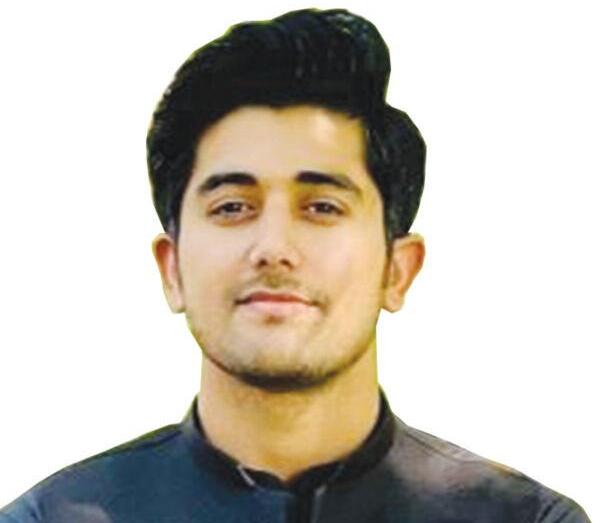
Iin earlier times, with women continuing to face subjugation Therefore it is crucial to thoroughly examine the negative impacts of globalization on women The reduction of job opportunities for men is a major implication of globalization It was previously believed that globalization would also create job opportunities for women across various sectors, contributing to their economic empowerment However, the reality has been different Rather than an increase in job opportunities women have started losing their existing ones This is because globalization allows people to move freely from one country to another, giving men the chance to migrate to developed countries where they can find jobs more easily Such circumstances adversely affect women in these developed nations making them more vulnerable to losing job opportunities particularly high-paying ones According to the report of UN women s report 2 7 billion women are unable to get their desired jobs This report manifests the fact that globalization is adversely affecting women instead of in a positive way Migration due to globalization also signifi-
cantly impacts women Historically people tended to avoid traveling from one country to another and preferred to establish businesses in their own countries Similarly, migration was less common However, with the rise of globalization, this trend has changed; now, people seek to expand their businesses and move to other countries in search of better opportunities This shift has had adverse effects on women They are increasingly vulnerable to exploitation, including human trafficking, sexual assault, and prostitution Women are often exploited for these harmful activities to generate wealth It has been observed that over 20 countries including China India Russia Thailand and Poland have the highest rates of human trafficking This increase is linked to the expansion of globalization Therefore it is evident that globalization is negatively impacting women The impact of globalization on social subsidies also contributes to the deterioration of women’s circumstances Globalization pressures governments to reduce subsidies which negatively affects women With the advent of globalization, many states have cut their subsidies, and this has adversely impacted women Multilateral institutions also play a crucial role in this issue Countries that receive bailout packages from these international financial institutions often face interference in their domestic policies These organizations particularly through Structural Adjustment Programs (SAPs), require countries to eliminate subsidies for the general population As a result, women s access to education, healthcare, and economic opportunities is compromised This argument is also bolstered by UN Press as they published the report where this issue is highlighted From this it can be deemed that removal of subsidies is also one the grave implications on women which is occurring due to globalization In addition to the previously mentioned repercussions, there are several other serious ramifications affecting women Viewing women only as reproductive beings restricting their access to certain fields and undermining their roles in the technology sector are significant impacts of globalization These issues stem from
a patriarchal mindset that persists in society leading to the belief that women can never surpass men This mentality needs to be changed Therefore, by implementing some strategic measures, these significant issues can be addressed Ensuring job opportunities for women is a crucial step that needs to be taken With women constituting over 50 percent of the global population providing them with secure and equitable job prospects is essential for their empowerment and economic independence For instance, the USA passed the Opportunity 2000 Act to enhance job opportunities for women; so similarly, other countries should adopt comparable measures to ensure that women have equal access to employment This would not only promote gender equality but also contribute to overall economic growth and social stability By taking these actions, societies can help women achieve their full potential and secure their rightful place in the workforce
Additionally it is essential to take steps to combat human trafficking and other harmful activities affecting women To address this issue effectively an international organization similar to the IAEA should be established This organization would oversee surveillance and have the authority to take immediate action against illegal activities By implementing such measures women would benefit from increased safety and be able to move freely without fear or hesitation
Similarly other important steps must be taken to ensure the security of women Providing subsidies to economically disadvantaged groups is crucial, as it helps women benefit from these resources Additionally increasing access to all sectors and recognizing women as valuable contributors to society is essential These changes can be achieved through widespread awareness campaigns Therefore, a comprehensive mechanism should be established to educate people about gender equality and challenge patriarchal and misogynistic attitudes Such efforts will ultimately foster a more equitable serene and prosperous world for everyone
The writer can be reached at bilalkhankhattak10@gmail com
S i m i l a r ly, o t h e r i m p o r t a n t s t e p s mu s t b e t a k e n t
i s a dva n t
w i d e s p r e a d aw a r e n e s s c a m p a i g n s
A test of justice


ments a formidable challenge The emergence of the Sahra Wagenknecht Alliance (BSW) with nearly 12 percent of the vote in Saxony and 15 8 percent in Thuringia adds another layer of complexity to an already fractured political landscape

TH E political landscape in Germany is undergoing a seismic shift, as evidenced by the recent state election in Thuringia For the first time since World War II a far-right party has emerged victorious in a German state election marking a significant moment in the nation s post-war history The Alternative for Germany (AfD) secured a staggering 32 8 percent of the vote, outpacing the center-right Christian Democratic Union (CDU), which managed only 23 6 percent This victory for the AfD signals a deepening discontent with Chancellor Olaf Scholz s government whose popularity continues to wane Adding to the complexity a newly established party founded by a prominent leftist also made notable inroads, underscoring the public’s appetite for change across the political spectrum The results have delivered a severe blow to the traditional parties which are now grappling with the implications of these historic gains by anti-establishment forces Germany s regional elections in Saxony and Thuringia, typically low-profile affairs, have suddenly become a focal point of concern not just for the country but for the European Union as a whole The results which saw extremist parties gaining significant ground are rattling an already uneasy EU The rise of populist disruptors is no longer confined to fringe movements; it s now a full-blown political reality across Europe especially in the EU’s eastern excommunist regions
The Alternative for Germany (AfD) is at the forefront of this upheaval securing substantial votes in both Saxony and Thuringia Despite other parties refusing to join them in coalition, the AfD’s strength is poised to make the formation of new state govern-
The discontent fueling these populist gains is rooted in deep dissatisfaction with a national government mired in infighting, coupled with anti-immigration sentiment and skepticism about Germany’s military aid to Ukraine The AfD has capitalized on these issues stoking fears with a campaign centered on anti-immigration rhetoric and sensationalized claims of government failure In the recent state elections Germany s political landscape is showing signs of fragmentation that could spell trouble for Chancellor Olaf Scholz While his center-left Social Democrats managed to cling to representation in Thuringia’s legislature their allies in the national coalition the Greens were less fortunate losing their seats entirely This loss mirrors the fate of the probusiness Free Democrats, who have now vanished from the state legislatures in both Thuringia and Saxony
The recent attack in Solingen where a failed Syrian asylum seeker killed three people and injured eight has become a potent symbol for both the far-right and mainstream politicians in Germany The tragedy was swiftly exploited to stoke fear and bolster the toxic narratives that extremist parties thrive on However the response wasn’t limited to the fringes; mainstream politicians also jumped into the fray calling for harsher asylum laws increased deportations and tighter security measures This environment of fear and reactionary politics paved the way for the Alternative for Germany (AfD) to secure its first state-level
victory despite the party s well-documented ties to right-wing extremism Before these elections, a significant portion of voters in Saxony and Thuringia identified immigration and asylum policies as their top concerns with support for Ukraine also serving as a contentious issue In this climate fear has been weaponized leading to a dangerous shift in Germany s political landscape, where extremism is increasingly normalized
As Germany approaches its next national election, Chancellor Olaf Scholz faces mounting pressure to adopt a tougher stance on immigration With his government s strategy on Ukraine also under scrutiny convincing voters that this path is essential for safeguarding their freedoms has become increasingly challenging Yet, no matter how hard Scholz pushes, it seems unlikely that his efforts will quell the rising tide of extremism that has taken root in the country These extreme movements thrive on misinformation often fueled by anti-Western narratives, both domestic and foreign The issue of immigration, a focal point for these groups, is far too complex to be solved by any single nation or bloc The root causes - conflict dispossession and the moral obligation to offer refuge - are intertwined with global dynamics that transcend borders Yet, in Germany and elsewhere, the surge of populists, nationalists, and alt-right forces prompts uncomfortable questions Are isolated incidents of violence being weaponized to bolster far-right popularity? As these forces gain traction the very liberal values that define European societies are at risk of being undermined, leaving a continent grappling with the consequences of fear-driven politics The recent electoral success of AfD

should not just trigger more infighting within Chancellor Olaf Scholz s embattled coalition but rather provoke deep reflection in Berlin The rise of such extremism is rooted in today s multifaceted challengeseconomic stagnation, austerity-driven welfare cuts, and the inflationary pressures squeezing state budgets Social media with its capacity to amplify fear and spread disinformation exacerbates these issues preying on the most primal human instincts As these malignant forces gain traction, the responsibility falls on the Scholz
o f R u s s i a Ês i nva s i o n o f U k r a i n e , t h e r i s e o f p o p u l i s t fo rc e s i n G e r m a ny c o u l d f u r t h e r d e s t a b i l i z e t h e f r ag i l e e q u i l i b r i u m w i t h i n t h e E U, a dd i n g a n o t h e
The case against Israeli-Saudi normalization



idence
H E N President Joe Biden leaves office early next year he will probably do so without having realized a signature item on his agenda for the Middle East a diplomatic normalization between Israel and Saudi Arabia, sealed by a formal U S security guarantee to Riyadh Yet this elusive agreement runs the risk of being picked up
watch to include Saudi Arabia Vice President Kamala Harris, the Democratic candidate, could be compelled to revive the deal or some variation of it both for the sake of continuity and because hammering out a grand bargain in this troubled region would be a foreign policy achievement for a relatively inexperienced politician
But for Harris or Trump, continuing to elevate this regional accord would be a grave mistake The proposed arrangement will not end the war in Gaza, solve the Israeli-Palestinian conflict block China’s inroads to the Middle East or counter Iran and its militant proxies Instead by committing Washington to defend a deeply repressive Arab state with a history of destabilizing behavior, the pact s main achievement will be to further entangle the United States in a region that successive U S presidents have tried to pivot away from The single-minded pursuit of this bad deal has also blinded U S policymakers to other more important drivers of conflict in the region and it has caused the United States to delay efforts to ramp up pressure on Israel to end its war in Gaza The next U S president should therefore jettison the proposed accord and focus Middle East policy instead on the economic and social issues most important to the region
Though an Israeli-Saudi agreement has yet to be finalized its broad outlines have already become clear According to the terms of the proposed accord Saudi Arabia would formally recognize Israel in return for Israel s commitment to establish an independent Palestinian state The United States would promise to defend
the
it to
or any
There
and
to
has demanded as a prerequisite
and
Saudi normalization might
to this Israeli public support for Palestinian statehood has dropped since the Hamas attack: according to a spring 2024 poll conducted by the Pew Research Center, just over a quarter of Israelis now support such an arrangement Even if Israel and Saudi Arabia were to arrive at some agreement the prospects that it would create lasting peace between Israelis and Palestinians are slim According to the Palestinian Center for Policy and Survey Research a majority of Palestinians in Gaza and the occupied West Bank support armed struggle against Israel Some Israelis are armed and radicalized and might also try to sabotage such a deal In fact, even the normalization deals that Israel has already signed appear to be on shaky ground After October 7 protests against the Abraham Accords broke out in Morocco and Bahrain Arab and Israeli leaders are having trouble upholding commitments that have already been made It would be especially hard for them to adhere to new ones
The deal also wouldn t give the United States any real advantage over China in the Middle East Saudi Arabia has been expanding relations with a range of outside powers including China and Russia on energy and trade to avoid overreliance on the United States Riyadh thinks a diversity of partners will attract better economic opportunities and allow access to more advanced technology and military systems, especially in areas in which the United States lacks a competitive edge China and Saudi Arabia, for example, are working together on infrastructure and technology projects as well as on renewable energy initiatives The deal would not prohibit this activity so this trend is likely to continue either way
The agreement would block Beijing s military activities by preventing China from building military bases in Saudi Arabia and limiting Saudi acquisition of Chinese weapons and domestic surveillance technology But these are near-meaningless concessions: military ties are not the main source of Beijing’s growing influence in Saudi Arabia or for that matter in the broader Middle East Today China has no permanent military presence or planned military bases in Saudi Arabia and is not a major weapons supplier to the kingdom, and the two countries rarely train their forces together More important, the economic and commercial partnerships that are the real drivers of China’s regional leverage would be left largely untouched
Notably U S efforts to push China out of other Middle Eastern countries have come up short In the nearby United Arab Emirates for instance Microsoft recently announced a $1 5 billion investment in G42, an Emirati artificial intelligence company, brokered with the help of the U S government In return for Microsoft’s funds, G42 agreed to sell off its Chinese investments and remove Chinese-produced technology from its systems in favor of U S components and services Since Microsoft s announcement of the investment however complications have emerged For example, although G42 has reduced ties with Chinese companies, other Emirati firms have not As a result, talent and know-how that G42 gains from its partnership with Microsoft could easily flow into firms in the UAE that have deeper relationships with Chinese investors possibly defeating the purpose of the restrictions The terms of the proposed U S -Saudi deal are quite
different than those between Microsoft and G42 of course but some of the same challenges apply Trying to selectively limit Chinese technology and investments inside Saudi Arabia would be difficult, and Beijing would likely maintain a significant and sometimes hard-to-detect presence in the kingdom Even under the potential accord for instance China would probably retain its investments in Saudi ports which might be leveraged for under-the-radar military operations or to refuel or resupply Chinese military ships The deal, then, is a poor way to deprive China of a foothold in the kingdom GO YOUR OWN WAY: The purported military benefits to the United States of Israeli-Saudi normalization are also overblown In theory the agreement would offer the United States some marginal military advantages when it comes to containing Iran Washington might use new access to Saudi waters and airspace to improve its ability to track and disrupt Iran s militias and interdict weapons shipments bound for its proxies But in practice, the military gains would be minimal Saudi Arabia like other Gulf Arab countries seeks to avoid open conflict with Iran and its proxies so it has been reluctant to help the United States fend off Houthi attacks in the Red Sea or act against Iranian proxies elsewhere in the region The agreement is unlikely to change that fact Even if it did, the additional access in Saudi Arabia would not give Washington much of a leg up: trying to deter low-intensity militia activity with ever-grander displays of U S hard power has often proved disappointing Iranian-backed armed groups have become masters at inflicting damage to Israel and U S bases in Iraq and Syria with just enough restraint to avoid crossing U S redlines or triggering escalation The United States’ campaign to stop Houthi attacks on commercial shipping over the past year is a case in point Even senior U S military officials have acknowledged the operation has been a costly failure because the Houthis have successfully dispersed their weapons and personnel Washington is not hamstrung by its capabilities or access It has decided that conducting a larger ground operation, which is probably necessary to stop Houthi attacks by force, is not worth risking American lives or a wider war With this experience in the rearview it is doubtful that additional military access in the region would make the United States safer
Perhaps most worrying a normalization agreement would bog down the United States in the Middle East at a time when the White House should be prioritizing other global challenges, such as countering Beijing in the South China Sea Despite receiving millions of tons of advanced weaponry from France Germany and the United States Saudi Arabia needs outside help to defend itself In the event of a war it would likely prove more of a liability for Washington than a valued partner The United States should continue to assist Saudi Arabia in developing niche capabilities it needs to protect itself, such as air defense systems But it should avoid making a sweeping commitment to send U S troops and materiel to defend the regime from external aggression Such a pledge might dissuade Riyadh from pursuing conciliation with its neighbors and embolden the kingdom to take risks
The deal would also harm the Middle East in more subtle ways The relentless pursuit of Israeli-Saudi normalization has sidetracked Washington from helping the region make progress on its actual sources of conflict and extremism To end the war in Gaza for example the United States will need to apply greater and more direct pressure on Israel Instead U S officials have behaved as if they can resolve the conflict by dangling the carrot of normalization More
INDIA SL AMS IRAN
iMran Khalid


Nor th Korea tests ‘new-type tac tical ballistic missile with super-large’ warhead
according to
conducted a
missile whose performance has been highly upgraded for its combat use it added Seoul s military had described the Wednesday launches as a salvo of short-range ballistic missiles which it said had flown about 400 kilometres east of the Korean peninsula The launch “was aimed at verifying
the accuracy of the hit at a medium range of 320 km and the explosive power of the super-large warhead, the KCNA said Kim said such a test was necessary “for the state security environment” of the country “The military and political situation in the region indicates that the work for bolstering up the military capability for selfdefence should be the most important affair, he said, KCNA reported The North has denied any sanctionsbusting weapons trade with Russia, but with diplomacy long-stalled it declared South Korea its principal enemy this year and recently moved nuclear-capable weapons to border areas It has also recently bolstered military ties with Moscow, with President Vladimir Putin making a rare visit to Pyongyang in June where he signed a mutual defence agreement with Kim Kim received Russian security chief Sergei Shoigu in Pyongyang last weekend and sent the North s foreign minister to Russia earlier this week The North is also preparing for a parliamentary meeting in October that is expected to approve measures likely to escalate tensions with South Korea including incorporating the hostile relationship between the two Koreas into its constitution
US says Iran hackers sent stolen Trump c ampaign emails to Biden’s team
AGENCIES The
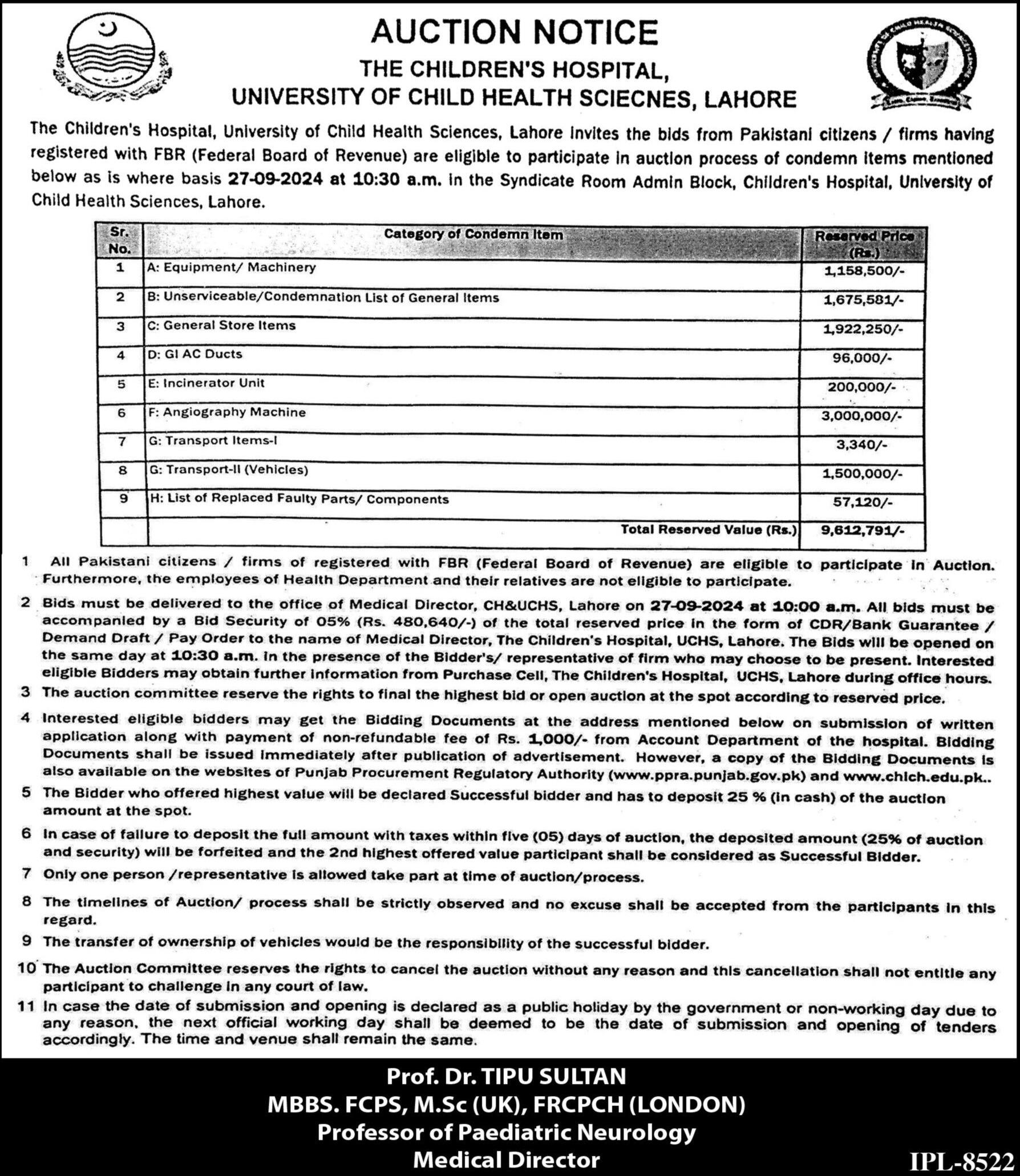
Teenage girl accused of killing mother seen texting moments after shots fired
A teenage girl, accused of fatally shooting her mother and attempting to kill her stepfather was captured on
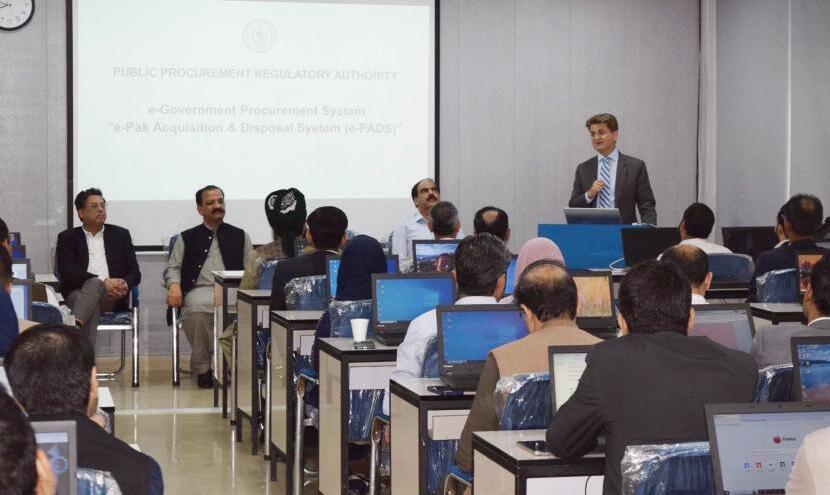
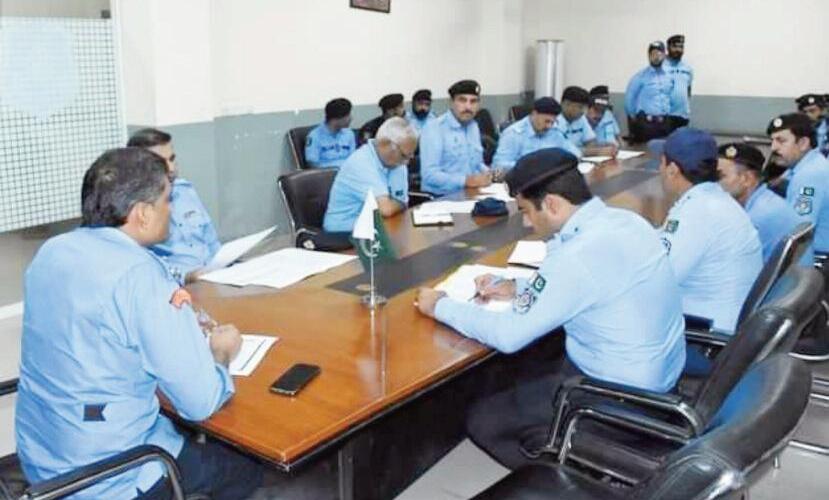



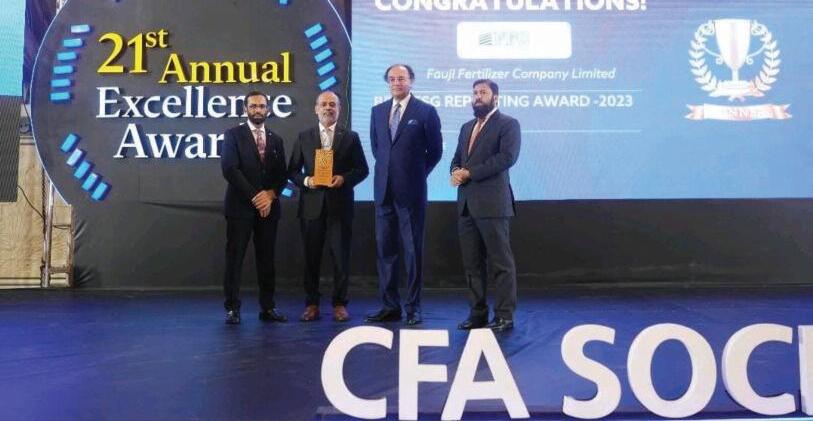
The Pakistan Agricultural Research Council (PARC) Islamabad organized the "Seerat-ul-Nabi Seminar" on 19th September 2024 The seminar focused to shed light on the teachings of Holy prophet Hazrat Muhammad (SAWW) and their significance in our lives Dr Ghulam Muhammad Ali, Chairman PARC, graced the occasion as the guest of honor and com-


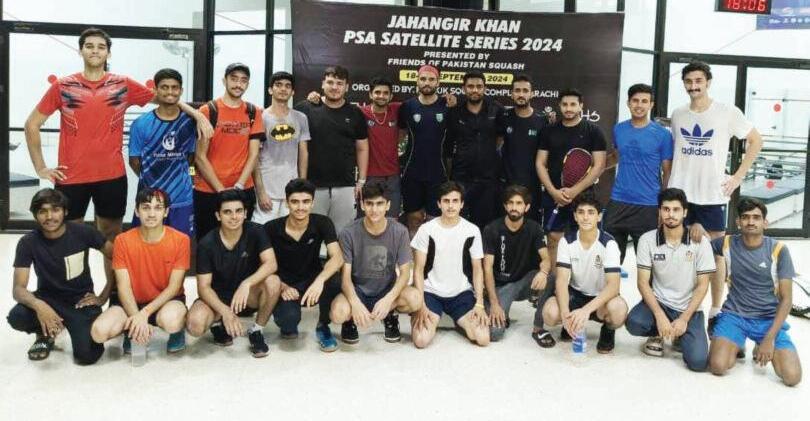
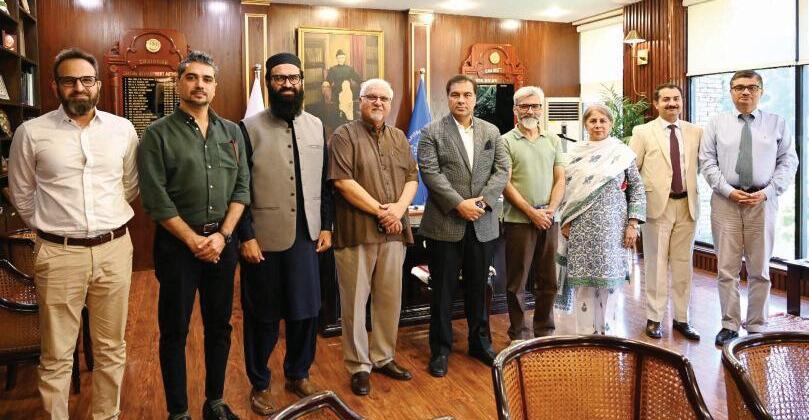
Development Authority (CDA) Muhammad Ali Randhawa met with delegation of Institute of Architects Pakistan (IAP) The delegation was led by President Ar Zulfiqar Ali accompanied by Vice President IAP and other senior members of IAP The delegation presented a draft Memorandum of Understanding (MoU), outlining




C U R I T Y C O O P E R AT I O N W I T H R U S S I A :
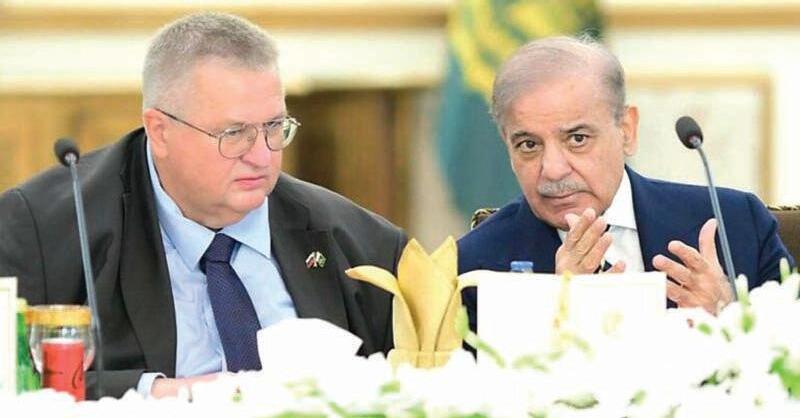
Prime Minister Shehbaz Sharif will participate in the high-level segment of the 79th session of the UN General Assembly (UNGA) in New York from September 23 to 27 Foreign Office Spokesperson Mumtaz Zahra Baloch, during her weekly briefing in Islamabad, shared details of the Prime Minister ’s visit Accompanying the Prime Minister will be Deputy Prime Minister and Foreign Minister Ishaq Dar
Incarcerated PTI founder Imran Khan on Thursday said that the government’s constitutional amendments aimed at destroying the apex court of the country which is tantamount to destroying the democracy and civil liberties
Talking to journalists in Adiala Jail Rawalpindi, the former premier said the main reason behind the proposed amendments was to control rather destroy the judiciary
He claimed that PTI rally in Lahore on September 21 will be historic urging the masses not to fear of jails He also urged the PTI leadership, workers and the nation to come out for their rights
He said protest was the basic right of the mases if the government tried to stop the rally PTI workers and masses will fill the jails
Imran Khan said that the government wanted to give an extension to the Chief Justice Qazi Faiz Issa, adding that the government will pick up the chief justice from apex court and place him in the constitutional court He said even the kids new about the government s plan regarding the proposed amendments
The former Prime Minister said instead of taking key amendments late night they must have taken steps in broad daylight He said the government wanted to wind up the
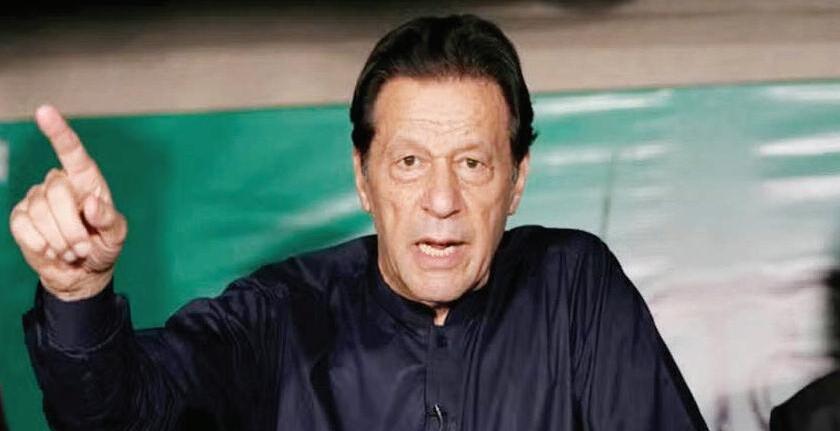
Supreme Court of Pakistan
He said those political leaders are supporting these amendments who once used to say “vote ko izzat do PTI founder said that ddemocracy does not run by force or by making people slaves, the base of ddemocracy is moral strength He said the former Commissioner Rawalpindi had rightly said that Qazi Faiz Issa and the Chief Election Commissioner were on same page in rigging of the elections Imran Khan said CJP Faiz Isa gave complete protection to rigging, he protected fascism as people are in jail for years without trial but CJP is indifferent to all legal violations ” PTI founder said the fraudulent election of February 8 is the biggest violation of fundamental rights eight months have passed and the tribunal could not start work because the Qazi has given protection” He claimed that the through
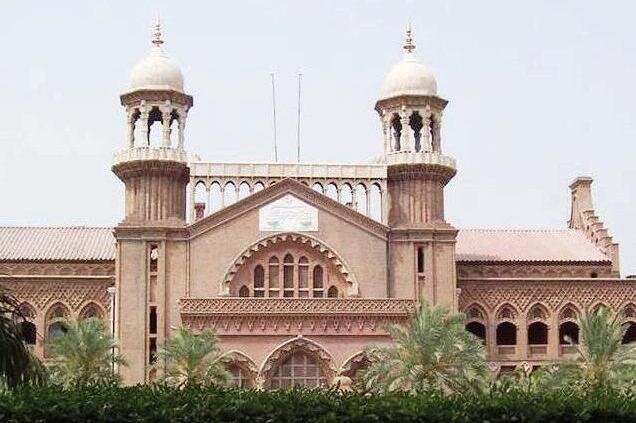
proposed constitutional amendments, the term of Qazi Faiz Isa, Chief Justice of Islamabad High Court and Chief Election Commissioner is being extended He said the future of Pakistan is linked with investment, no one would invest in Pakistan except overseas Pakistanis Imran Khan claimed that over 4,000 Pakistani companies have registered with the Dubai Chamber during last six months PTI founder said capital is leaving the country doctors are also leaving the country He said the reforms can be done by a government that has a mandate from the people He said during PTI government NAB collected 480 bil-
ISLAMABAD S
PPP chairman Bilawal Bhutto Zardari on Thursday reaffirmed his commitment to fulfilling his mother Benazir Bhutto s promise of restoring the constitution and announced all out support for the creation of constitutional court in the country
Addressing a lawyers function in Islamabad Bilawal recalled Benazir
Bhutto s vision for a democratic Pakistan, where the Charter of Democracy would serve as a cornerstone for abolishing “black laws” and ensuring justice for all citizens Referring to the late Benazir
Bhutto’s vision he noted that she believed in a judiciary that focused on justice rather than politics She was clear in her stance that judges who wished to engage in political activities should resign from their judicial roles and form their own political parties
PPP leader claimed that Benazir
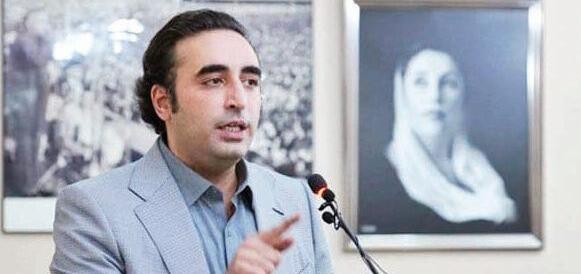
Bhutto had planned to establish a constitutional court to ensure that the judicial system served the people with fairness and integrity This court was intended to handle political cases freeing the judiciary from political influence We must fulfil Benazir Bhutto s promises; come what may, we must establish the constitutional court in line with the Charter of Democracy ” Bilawal vowed The process of judicial appointments needs reform and the people of this country must receive justice Bilawal also criticized former Chief Justice Iftikhar Chaudhry, accusing him of laying the foundation for political activism within the judiciary He expressed concern that the interference of judges in political matters, particularly in the context of the 18th Amendment, could undermine the progress made in restoring democracy “The doctrine of ‘political activism’ initiated by Chief Justice Iftikhar Chaudhary has since been propagated by figures like Saqib Nisar and Gulzar Ahmed Articles of the Constitution, such as 58 -2B, have been weaponised
Bilawal observed that only 15 percent of the Supreme Court s cases are constitutional yet these occupy significant portions of time He questioned whether it would not be appropriate to establish separate constitutional courts, representing the federation, to handle cases that currently consume 90 percent of the court’s
diciary to respect the boundaries set by the constitution and to refrain from political involvement He reaffirmed the PPP s mission preserving the democratic principles that Benazir Bhutto fought for and reminded the nation of the importance of maintaining a clear separation between the judiciary and politics to safeguard the future of democracy in Pakistan

